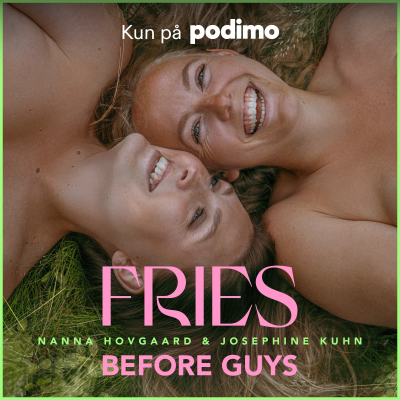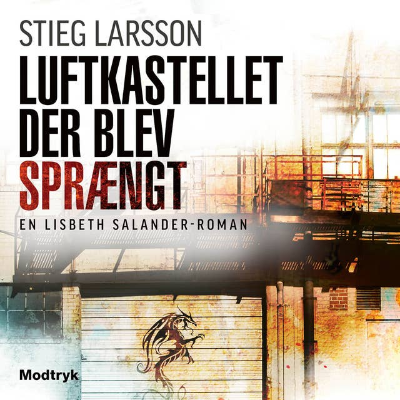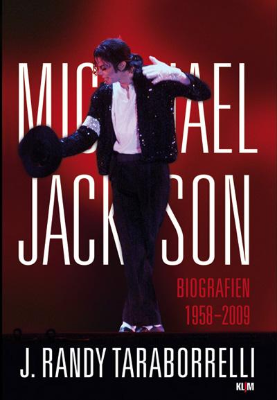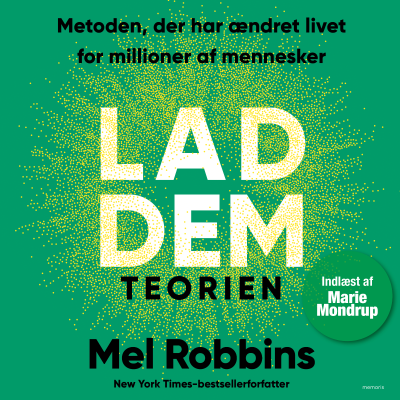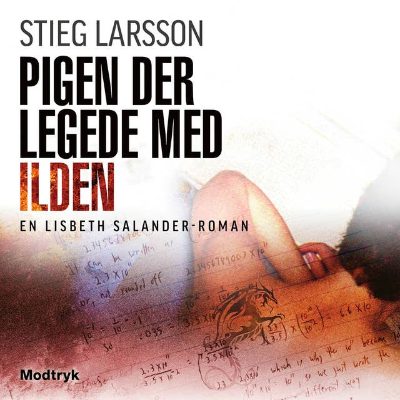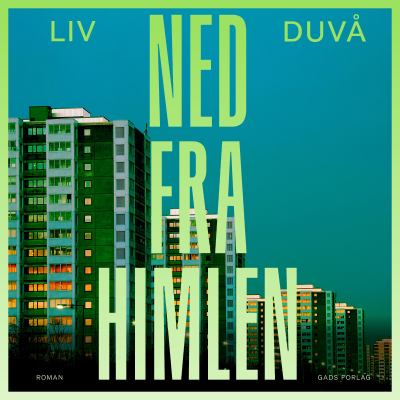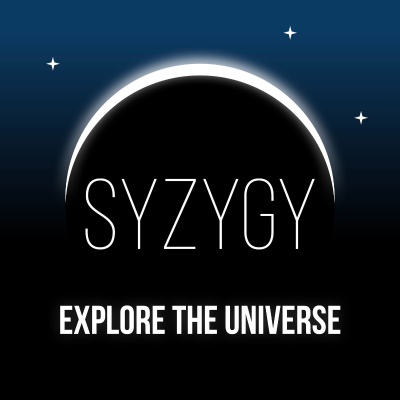
syzygy
engelsk
Videnskab & teknologi
Begrænset tilbud
1 måned kun 9 kr.
Derefter 99 kr. / månedOpsig når som helst.
- 20 lydbogstimer pr. måned
- Podcasts kun på Podimo
- Gratis podcasts
Læs mere syzygy
Join astronomer Dr Emily Brunsden and enthusiastic not-astronomer Dr Chris Stewart as they explore the universe.
Alle episoder
139 episoders3e3: Solar System Sanctuaries
In this season on life in the universe, it's time to look closer to home: what are the chances we will find evidence of life — present or past-tense — in the Solar System, our own back yard? Emily's fabulous colleague Dr Clément Moissard, plasma physicist at the University of York, joins us to discuss the search for life on Mars, on the icy moons of Jupiter and Saturn ... even on Pluto?! Surely not. It's a fascinating and fun conversation with plenty of surprises: Chris somehow missed the fact that we landed on Titan in 2005, Clément is super keen to visit mysterious Planet 9, and Emily just seems fixated on tasty space fish. On the web: syzygy.fm [http://syzygy.fm/] Help us make Syzygy even better! Tell your friends and give us a review [https://www.imore.com/how-rate-or-review-podcast-your-iphone-or-ipad], or show your support on Patreon: patreon.com/syzygypod [https://patreon.com/syzygypod] Syzygy is produced by Chris Stewart [http://kipstewart.com/] and co-hosted by Dr Emily Brunsden [http://www.york.ac.uk/physics/people/brunsden/] from the Department of Physics at the University of York. Some of the things we talk about in this episode: • Our special guest Dr Clément Moissard [https://www.york.ac.uk/physics-engineering-technology/people/clementmoissard/] • Latest evidence for life on Mars [https://www.bbc.co.uk/news/articles/cd725pj0g9ro]? • Water on Europa [https://www.esa.int/ESA_Multimedia/Images/2020/05/New_evidence_of_watery_plumes_on_Jupiter_s_moon_Europa] • Life on Enceladus? [https://www.bbc.co.uk/newsround/articles/cx2pwpxw1zpo] • The Cassini-Huygens mission [https://science.nasa.gov/mission/cassini/] • Cassini’s Grand Finale [https://www.youtube.com/watch?v=xrGAQCq9BMU] and images [https://solarsystem.nasa.gov/cassini-raw-images/?order=earth_date+desc&per_page=50&page=0] • Wait … we landed on Titan? [https://www.space.com/35315-saturn-moon-titan-landing-anniversary-huygens.html] • Sample return missions from Mars [https://science.nasa.gov/mission/mars-sample-return/] • JUICE mission to Ganimede [https://www.esa.int/Science_Exploration/Space_Science/Juice/Spotlight_on_Ganymede_Juice_s_primary_target] • Zeppelins on Venus?! [https://sacd.larc.nasa.gov/smab/havoc/] • There’s water on Pluto [https://www.geekwire.com/2016/map-reveals-theres-water-ice-pluto/]?! • Planet 9 [https://en.wikipedia.org/wiki/Planet_Nine]
s3e2: Habitats in the Void
Having established that the hunt for life in the galaxy ought to begin with an appropriate star, Emily turns our attention towards suitable planets. But what makes a hospitable home for life? It’s complicated, and it seems whatever way we look at it, we don’t have a lot of candidates to choose from. Emily discusses earth-like rocky planets, ocean worlds, and wonderfully-named Chthonian planets, before letting rip with some wild speculation. I mean, life could be anywhere, right? On the web: syzygy.fm [http://syzygy.fm/] Help us make Syzygy even better! Tell your friends and give us a review [https://www.imore.com/how-rate-or-review-podcast-your-iphone-or-ipad], or show your support on Patreon: patreon.com/syzygypod [https://patreon.com/syzygypod] Syzygy is produced by Chris Stewart [http://kipstewart.com/] and co-hosted by Dr Emily Brunsden [http://www.york.ac.uk/physics/people/brunsden/] from the Department of Physics at the University of York. Some of the things we talk about in this episode: • The first exoplanet, 51 Pegasi b [https://en.wikipedia.org/wiki/51_Pegasi_b] • The Habitable Zone [https://www.esa.int/Science_Exploration/Space_Science/Plato/Planets_in_the_habitable_zone] • Chthonian planets [https://en.wikipedia.org/wiki/Chthonian_planet], Mini Neptunes [https://en.wikipedia.org/wiki/Mini-Neptune] & Super Earths [https://en.wikipedia.org/wiki/Super-Earth] • The Habitable Worlds Catalog [https://phl.upr.edu/hwc](ue) • The Trappist-1 System [https://science.nasa.gov/exoplanets/trappist1/] • Proxima Centauri b [https://science.nasa.gov/exoplanet-catalog/proxima-centauri-b/] • LHS 1140 b [https://science.nasa.gov/exoplanet-catalog/lhs-1140-b/] • Hycean Worlds [https://hycean.group.cam.ac.uk/about/what-is-hycean/] • Dimethyl Sulphide discovery? [https://www.scientificamerican.com/article/what-is-dimethyl-sulfide-the-chemical-found-on-exoplanet-k2-18-b/] • Icy Ocean Planets [https://en.wikipedia.org/wiki/Ice_planet]
s3e1: First, You Need Light
We're back with Season 3! For the next six episodes we're talking life in the universe, and so far we have N=1: we know there's life on Earth, but nowhere else as yet. Those are challenging statistics. In this episode Emily makes the case that to explore the possibility of life elsewhere in the cosmos, you need planets — and to have planets, you need stars. She then proceeds to whittle the number of potential life-bearing systems in our galaxy down to a scarily small number. But all is not lost, we still have five episodes to fill with hope and optimism. On the web: syzygy.fm [http://syzygy.fm/] Help us make Syzygy even better! Tell your friends and give us a review [https://www.imore.com/how-rate-or-review-podcast-your-iphone-or-ipad], or show your support on Patreon: patreon.com/syzygypod [https://patreon.com/syzygypod] Syzygy is produced by Chris Stewart [http://kipstewart.com/] and co-hosted by Dr Emily Brunsden [http://www.york.ac.uk/physics/people/brunsden/] from the Department of Physics at the University of York. Some of the things we talk about in this episode: • Types of stars [https://en.wikipedia.org/wiki/Stellar_classification] • Stellar magnetism [https://en.wikipedia.org/wiki/Stellar_magnetic_field] • Multiple star systems [https://en.wikipedia.org/wiki/Star_system] • Stellar metallicity [https://en.wikipedia.org/wiki/Metallicity] • The Galactic Habitable Zone [https://en.wikipedia.org/wiki/Galactic_habitable_zone]
s2e6: Experimental Extraterrestrial Exo-Observatory
According to one survey, around one-third of Australians think aliens not only exist, but have actually visited Earth. That's ... a bit fraction. In this final episode of season 2, we ask how we'd even find out if life exists around other stars. Emily introduces the Habitable Worlds Observatory, an incredible new space telescope that's just in the early design phase and not due for years yet, with lots of technical and scientific holes to plug. Whether we can find life on other planets, who knows ... but maybe we've just found season three of Syzygy! On the web: syzygy.fm [http://syzygy.fm/] Help us make Syzygy even better! Tell your friends and give us a review [https://www.imore.com/how-rate-or-review-podcast-your-iphone-or-ipad], or show your support on Patreon: patreon.com/syzygypod [https://patreon.com/syzygypod] Syzygy is produced by Chris Stewart [http://kipstewart.com/] and co-hosted by Dr Emily Brunsden [http://www.york.ac.uk/physics/people/brunsden/] from the Department of Physics at the University of York. Some of the things we talk about in this episode: • Habitable Worlds Observatory [https://www.greatobservatories.org/hwo] • Square Kilometre Array [https://www.skao.int/en] • SETI [https://www.seti.org] and Jill Tarter [https://www.seti.org/jill-tarter-0] • Jocelyn Bell Burnell [https://en.wikipedia.org/wiki/Jocelyn_Bell_Burnell] and the first pulsar [https://www.cam.ac.uk/stories/journeysofdiscovery-pulsars] • Roman Space Telescope [https://science.nasa.gov/mission/roman-space-telescope/] • Designs for the HWO [https://svs.gsfc.nasa.gov/20395] • Exoplanet biosignatures [https://en.wikipedia.org/wiki/Biosignature]
s2e5: Exotelescope Expeditions
Exo-planets, sure. Exo-moons and -comets? Fine. But exo ... telescopes?! Emily is going out on a limb in this episode, expanding the definition of telescope to include things that measure stuff in space, and we're here for it! Which means we really do have a few telescopes out there beyond the Solar System, in the shape of Voyagers 1 and 2, with a few more waiting in the wings. On the web: syzygy.fm [http://syzygy.fm/] Help us make Syzygy even better! Tell your friends and give us a review [https://www.imore.com/how-rate-or-review-podcast-your-iphone-or-ipad], or show your support on Patreon: patreon.com/syzygypod [https://patreon.com/syzygypod] Syzygy is produced by Chris Stewart [http://kipstewart.com/] and co-hosted by Dr Emily Brunsden [http://www.york.ac.uk/physics/people/brunsden/] from the Department of Physics at the University of York. Some of the things we talk about in this episode: • The Voyager Missions [https://science.nasa.gov/mission/voyager]: Voyager 1 [https://science.nasa.gov/mission/voyager/voyager-1/] and Voyager 2 [https://science.nasa.gov/mission/voyager/voyager-2/] • Where are the Voyager spacecraft now? [https://science.nasa.gov/mission/voyager/where-are-voyager-1-and-voyager-2-now/] • The Heliosphere, where the Solar System ends [https://science.nasa.gov/heliophysics/focus-areas/heliosphere/] • The Voyager Golden Record [https://science.nasa.gov/mission/voyager/voyager-golden-record-overview/] • NASA relieved to get a call from Voyager 1 [https://blogs.nasa.gov/voyager/2024/11/26/nasas-voyager-1-resumes-regular-operations-after-communications-pause/] • Syzygy Episode 42 [https://syzygy.fm/podcast/episode42]: Life, the Universe, and Everything • Syzygy Episode 79 [https://syzygy.fm/podcast/episode79]: Voyager Hears a Hum • Voyager 2 turns of last scientific instrument [https://blogs.nasa.gov/voyager/2024/10/01/nasa-turns-off-science-instrument-to-save-voyager-2-power/] • Uranus mystery finally solved! [https://www.jpl.nasa.gov/news/mining-old-data-from-nasas-voyager-2-solves-several-uranus-mysteries/] • The Kuiper Belt [https://en.wikipedia.org/wiki/Kuiper_belt] and the Oort Cloud [https://en.wikipedia.org/wiki/Oort_cloud] • The Pioneer Program [https://en.wikipedia.org/wiki/Pioneer_program], esp. Pioneer 10 [https://en.wikipedia.org/wiki/Pioneer_10] and Pioneer 11 [https://en.wikipedia.org/wiki/Pioneer_11] • The Pioneer Plaque [https://www.planetary.org/articles/0120-the-pioneer-plaque-science-as-a-universal-language] • The New Horizons mission [https://science.nasa.gov/mission/new-horizons/] and the Pluto Heart image • New Horizons visits Ultima Thule [https://www.nasa.gov/missions/new-horizons-spacecraft-returns-its-sharpest-views-of-ultima-thule/] (Arrokoth [https://en.wikipedia.org/wiki/486958_Arrokoth])
Vælg dit abonnement
Begrænset tilbud
Premium
20 timers lydbøger
Podcasts kun på Podimo
Gratis podcasts
Opsig når som helst
1 måned kun 9 kr.
Derefter 99 kr. / måned
Premium Plus
100 timers lydbøger
Podcasts kun på Podimo
Gratis podcasts
Opsig når som helst
Prøv gratis i 7 dage
Derefter 129 kr. / month
1 måned kun 9 kr. Derefter 99 kr. / måned. Opsig når som helst.








